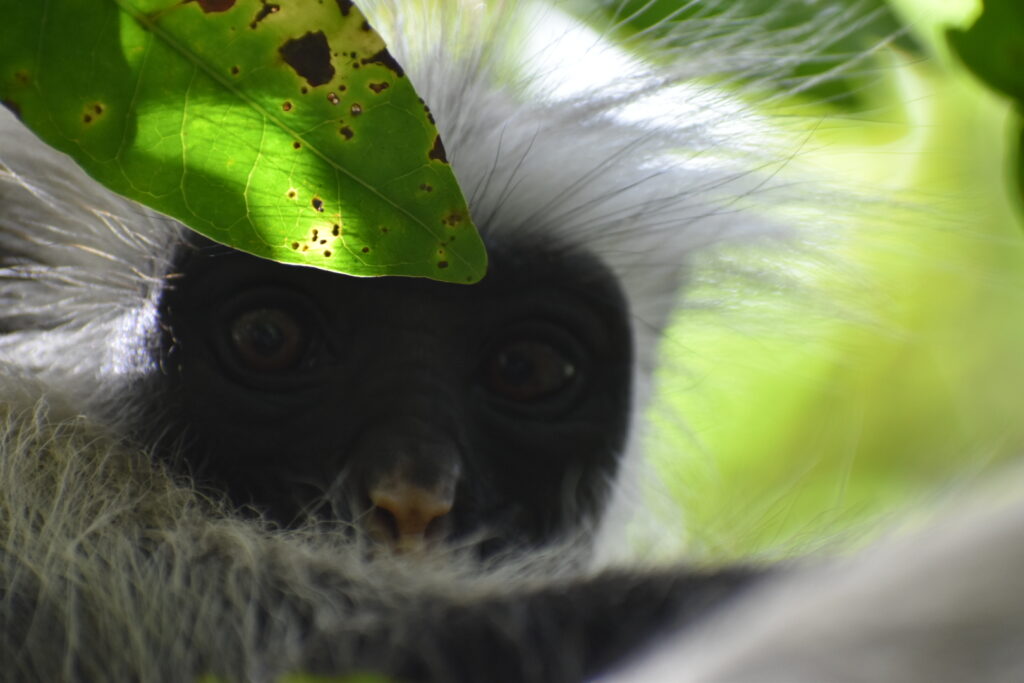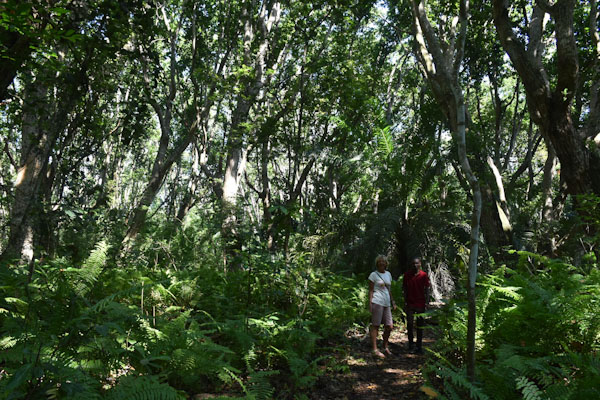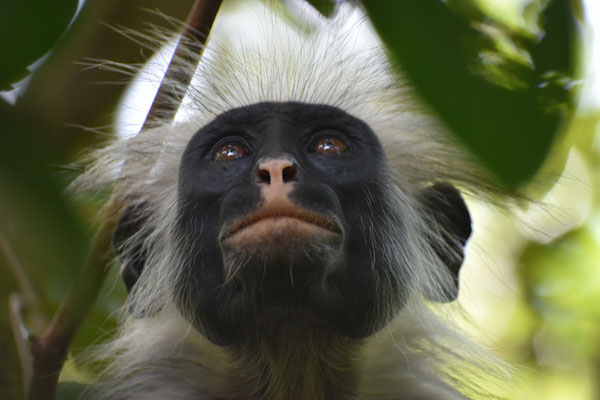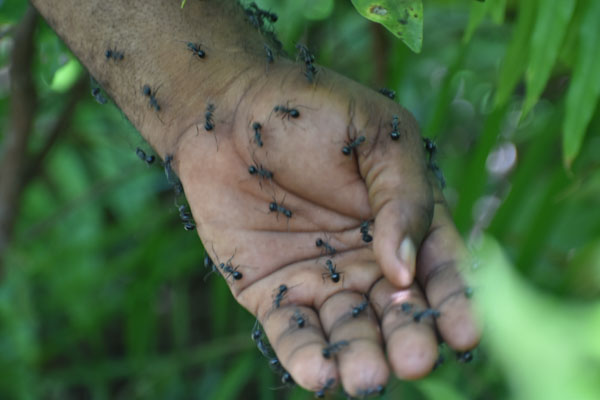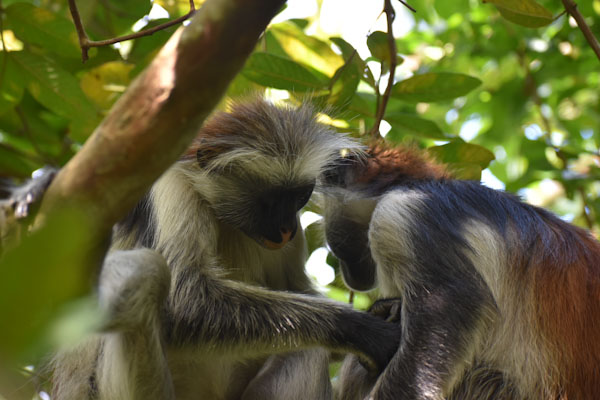Jozani Forest
The wild, green heart of Zanzibar
Discover the Magic of Jozani Forest
Zanzibar’s Enchanted Green Heart ♥
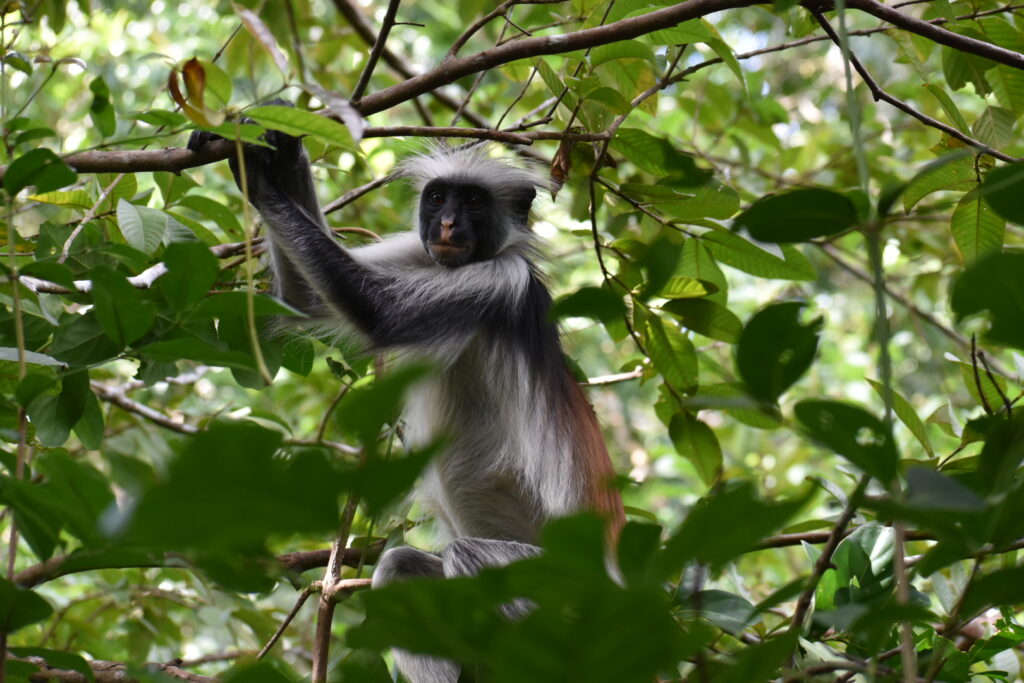
Hidden in the tropical heart of Zanzibar, Jozani Forest National Park is a destination that feels like stepping into another world – where ancient trees whisper stories of time, red colobus monkeys swing from canopy to canopy, and rare butterflies dance through shafts of sunlight. For travelers seeking a blend of adventure, biodiversity, and authentic culture, Jozani Forest offers a truly unforgettable experience.
A Natural Treasure of Zanzibar
Jozani Forest, officially known as Jozani Chwaka Bay National Park, is the only national park in Zanzibar and spans around 50 square kilometers. Though compact in size, this forest is a giant in terms of ecological value. It’s home to Zanzibar’s last remaining indigenous woodland and boasts a rich mosaic of habitats – from swamp forests and mangroves to salt marshes and coral rag thickets.
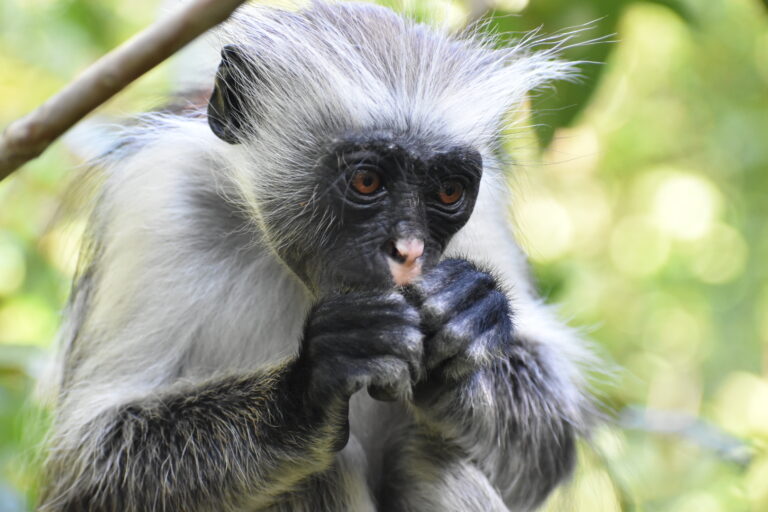
Meet the Famous Red Colobus Monkeys
Perhaps the most iconic residents of the forest are the Zanzibar red colobus monkeys, an endangered species found nowhere else in the world. Known for their playful nature, striking rust-red coats, and expressive faces, these monkeys have become a symbol of conservation success.
Visitors can observe these sociable primates up close as they leap between trees, groom each other, or curiously observe the humans below. Conservation efforts in the park have allowed their population to slowly recover, and seeing them in their natural habitat is a heartwarming highlight for any nature lover.
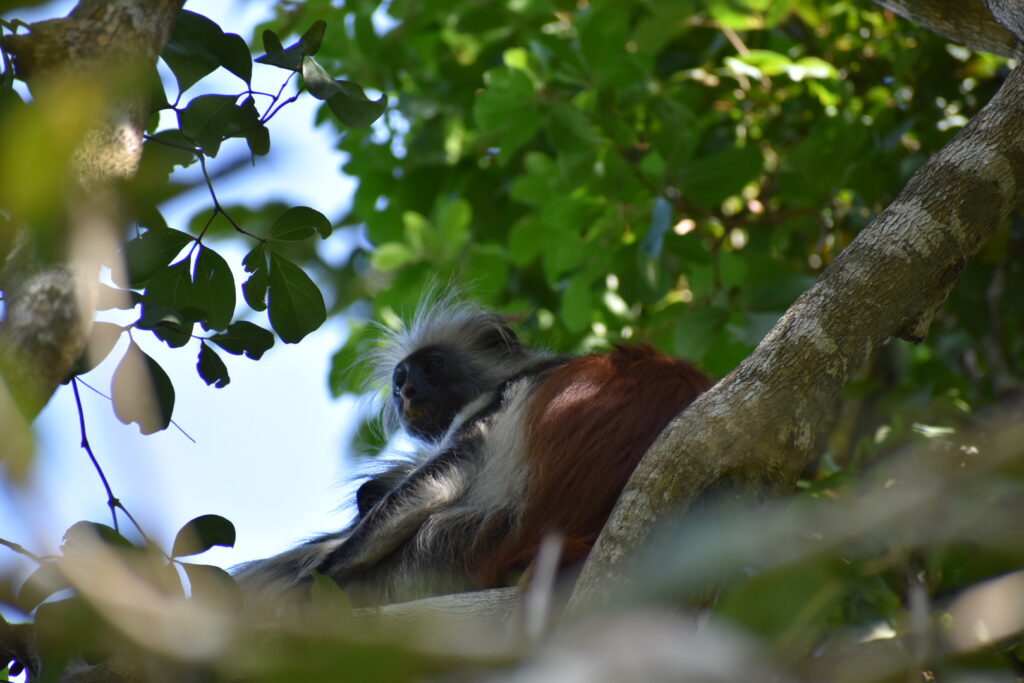
A Biodiversity Hotspot
Jozani is more than just colobus monkeys. The park is home to over 100 species of trees, dozens of butterfly species, chameleons, bush babies, and the elusive Zanzibar leopard—although the latter is believed by some to be extinct. Birdwatchers will be delighted by the chance to spot species like the Fischer’s turaco, mangrove kingfisher, and African paradise flycatcher.
The park’s mangrove boardwalk is another must-see. This elevated wooden path takes you deep into the mangrove ecosystem, where you can learn about the critical role these plants play in protecting coastlines and supporting marine life.
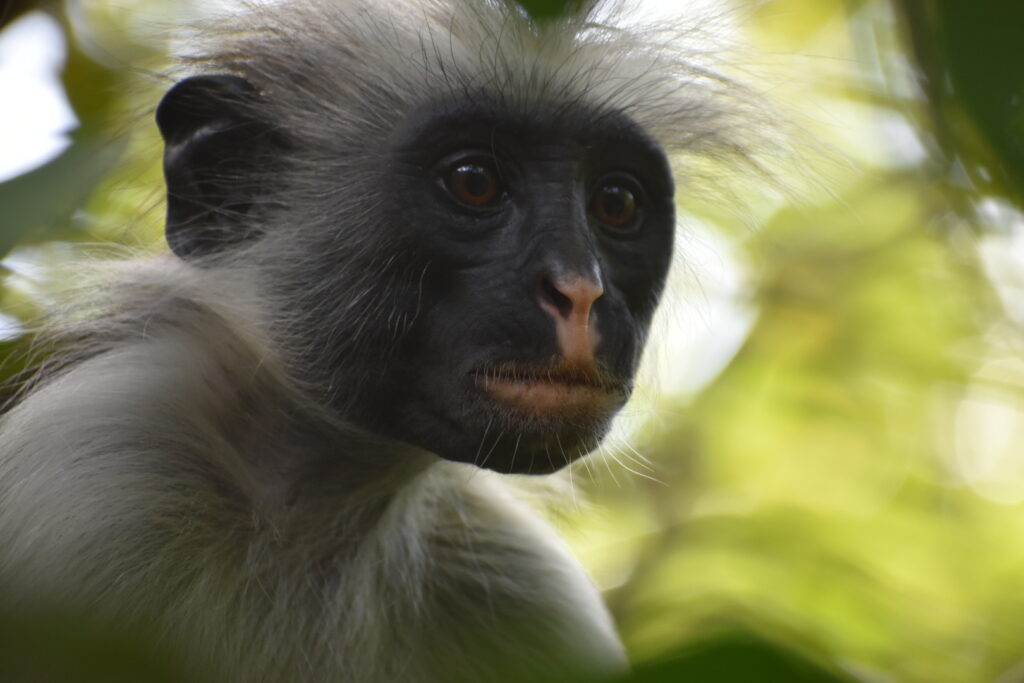
A Cultural and Environmental Legacy
Jozani Forest is not just a sanctuary for wildlife – it’s also a living part of Zanzibar’s cultural heritage. Local communities have traditionally used the forest for medicinal plants, honey, and spiritual practices. Today, many of them are directly involved in eco-tourism and conservation efforts, ensuring that the benefits of the park are shared sustainably.
A guided tour of Jozani is not only educational but also supports these local initiatives. Knowledgeable guides – often from nearby villages – share insights into both the forest’s ecology and its cultural significance, offering a holistic and respectful experience.
Practical Information for you
- Location: About 35 km southeast of Zanzibar City (Stone Town), easily accessible by road
- Opening Hours: Typically 7:30 am to 5:00 pm daily
- What to Bring: Comfortable walking shoes, insect repellent, water, and a camera. Dress modestly and respectfully, especially when interacting with local guides or villagers
Why you shouldn’t miss Jozani Forest
In a destination renowned for white sand beaches and turquoise waters, Jozani Forest offers a refreshing contrast – lush, green, and brimming with life. It’s a place to reconnect with nature, support conservation, and see a side of Zanzibar that many visitors overlook.
Whether you’re a wildlife enthusiast, a photographer, or simply a curious traveler, Jozani Forest promises moments of wonder and connection.
Come for the monkeys, stay for the magic ♥
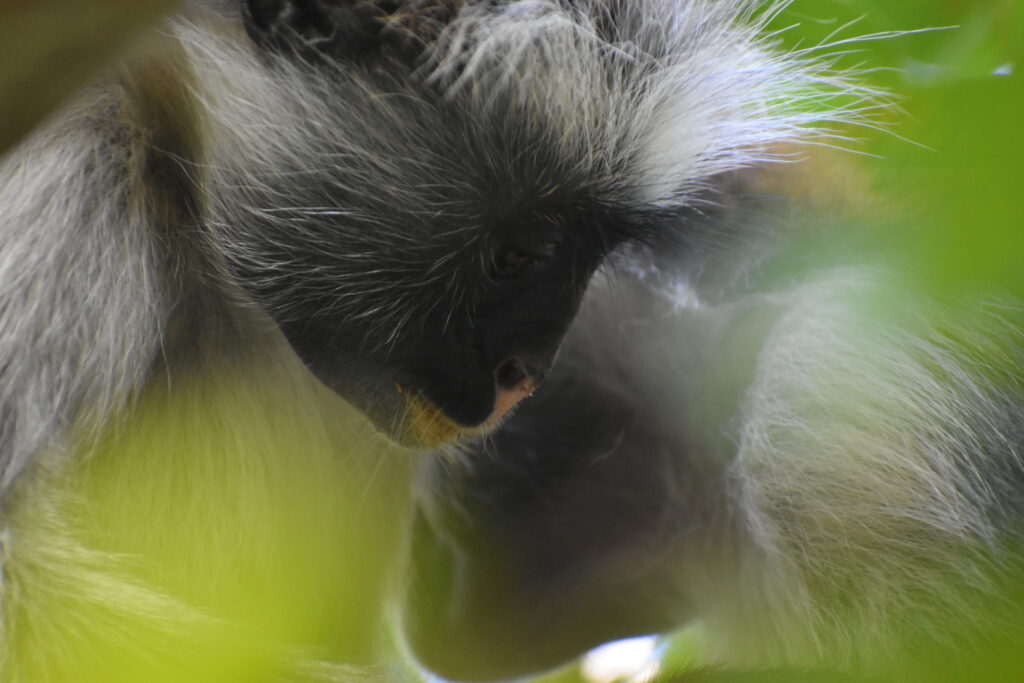
The Star Attraction - Red Colobus Monkeys
Bonus Highlight
One of the biggest draws to Jozani Forest is the chance to encounter the rare and charismatic Zanzibar red colobus monkey – a species found nowhere else on Earth. With fewer than 6.000 individuals remaining, these monkeys are critically endangered and are considered one of Africa’s most unique and vulnerable primates.
Unlike other monkey species, Zanzibar red colobus monkeys are not shy. They live in social groups of up to 50 individuals and are often seen foraging, grooming, or relaxing in the treetops near forest paths. Their appearance is striking – dark faces with expressive eyes, tufted crowns, and a coat of black, white, and rich chestnut red. The long tail, often used for balance as they move through the forest canopy, adds to their elegant silhouette.
But what makes them truly fascinating is their behavior and diet. Red colobus monkeys are leaf-eaters, with a highly specialized digestive system that allows them to ferment and process mature leaves, unripe fruit, and flowers – often from plants that are toxic to other animals. You might see them chewing thoughtfully on leaves or leaping between branches with impressive agility.
Despite their charm, these monkeys face serious threats: habitat loss, deforestation, and human-wildlife conflict have all taken a toll on their population. Jozani Forest remains their last stronghold, and conservation efforts – including habitat protection and community education – are crucial to their survival.
Visiting Jozani offers not only a rare wildlife experience, but also a chance to contribute to the conservation of this iconic species. By supporting the park and local ecotourism, travelers help ensure a future for the red colobus monkeys in the wild.
Don’t forget your camera – capturing a moment with these enchanting primates in their natural environment is a memory you’ll treasure for years to come.
Karibu sana!
